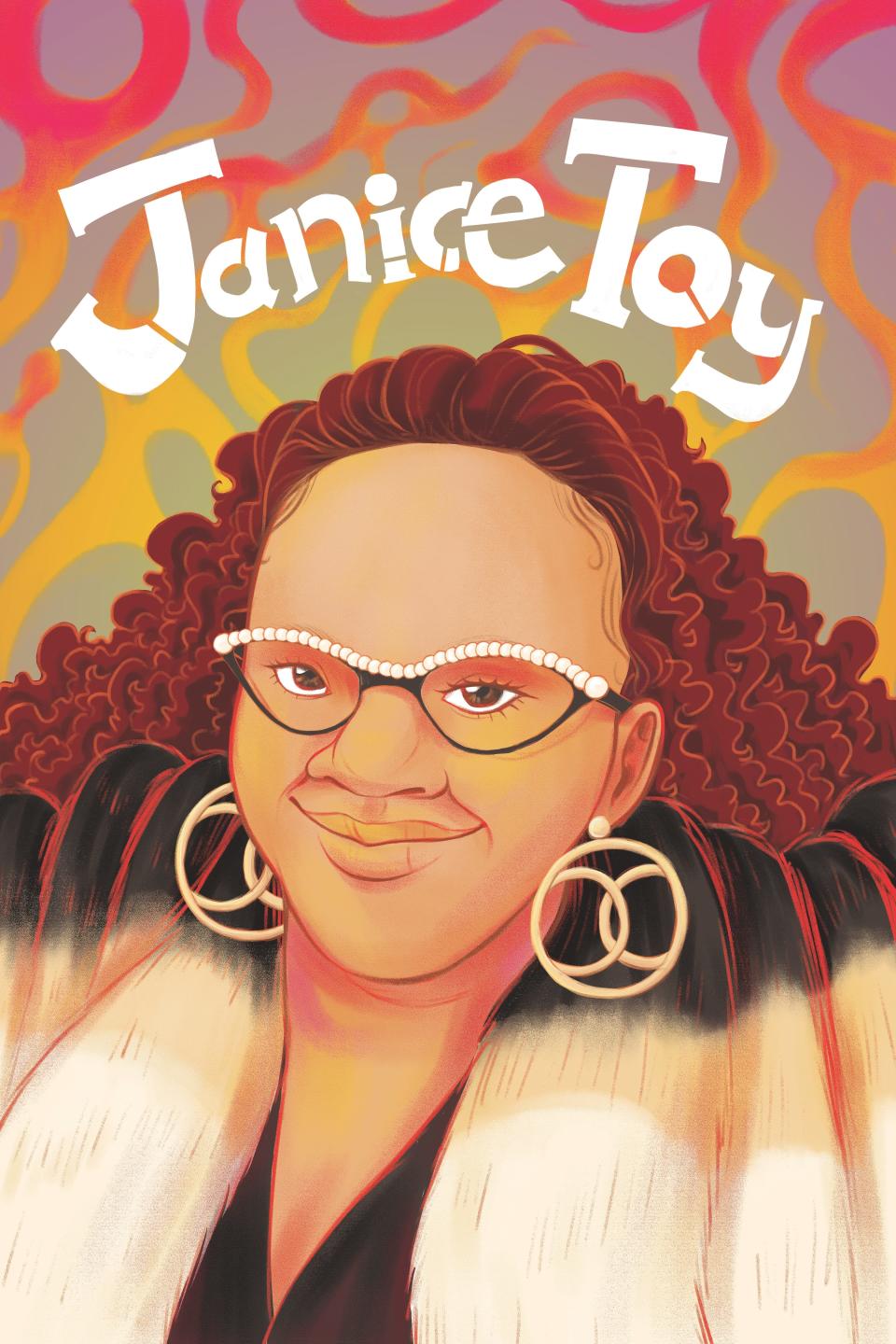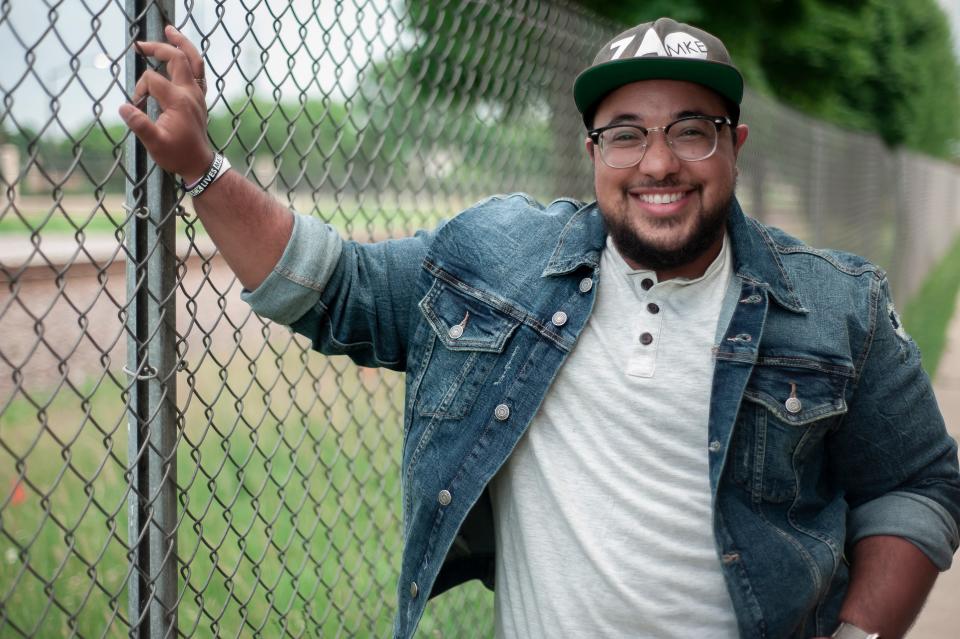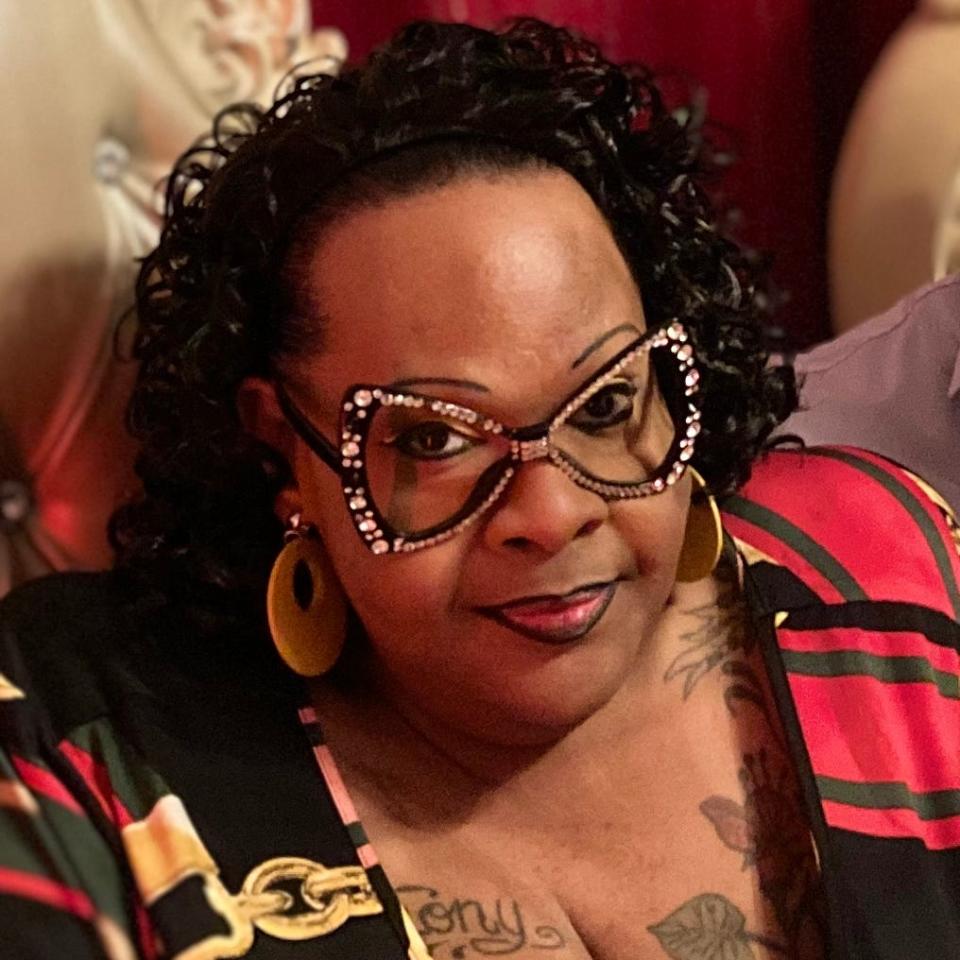Pride Month profile: Unconditional love helped Janice Toy become legendary performer
Editor's Note: In honor of Pride month, we will feature profiles of five Milwaukee Black LGBTQ+ elders. They were part of a research project for the mobile app lgbt milWALKee that was made possible by the fiscal sponsorship of the Cream City Foundation and grants from SC Johnson and the Greater Milwaukee Foundation. Their oral history interviews have since become the cornerstone of the House of History, a program of Diverse & Resilient dedicated to collecting and sharing Milwaukee’s Black LGBTQ+ history. The website houseofhistory.org will launch soon.
As a young child, Janice Toy always felt different and didn’t want to do the normal things expected of boys. She always knew herself to be a girl, though the world saw it differently. When she played pretend with the other children, she would say things like “I should be the Mama,” and for Halloween she always chose a feminine costume.
When the “My Buddy” doll came out in 1985, a doll designed for young boys, she desperately wanted one.
“It gave me the sense that I could play with a doll, like other girls – they were always able to play with dolls and carry their dolls different places, so that kind of gave me that feeling that I could have a doll too,” Toy said.
She “cried and cried and begged and begged” her mother for the doll, and remembers that Christmas present to this day.
Toy, better known by her stage name, Janice Colby, grew up on the north side of Milwaukee. While attending North Division High School, her choir performed at the Apollo theater, Carnegie Hall, and the White House. Janice graduated in the top 10% of her class and received a full-ride scholarship from WE Energies to attend Lane College in Jackson, Tennessee.
“No matter what I was going through, I always had somebody that I knew I could count on, you know?” Toy said. “And you don't find that, especially in this type of lifestyle, that you have someone that genuinely can say that they love you and wholeheartedly mean it, you know?”
'No matter what, I was always gonna be her child’

After returning home from college and years of pushing down her feelings, trying to meet the expectations of her church that she be attracted to women, not want to be one, Toy had found the freedom to be herself in a new city. Meeting other transgender people, knowing she was not the only one, gave her the confidence to tell her mother.
“When I came out to her, she told me that she already knew, she was just waiting for me to kind of tell her, and she told me that no matter what I choose to do in this life, always be the best at it,” Toy said. “And no matter what, I was always gonna be her child.”
With the unconditional love and support of her mother, she began to physically transition. Three years later, in 1996, Toy legally changed her name. By this time, she had begun a legendary performance career. She started performing in gay bars and worked her way into pageant life. Pageants resembled Miss America competitions, complete with swimsuits, evening gowns, and a talent portion, but they differed in that contestants had been assigned male at birth.

Toy won an astounding 17 pageants during her performance career, which included being crowned the first ever Miss PrideFest in 2002. She stood out from the rest of the competition as a “big girl” with great fashion who always had cute, custom-made gowns, and performed convincingly. A lot of people thought she resembled Broadway actress and recording artist Jennifer Holiday. She began performing as Holliday, once even getting the opportunity to perform with Holliday at the Black LGBTQ+ bar Barbie Dolls.
Not only did she win pageants, she also performed in several states and at many of Milwaukee’s LGBTQ+ bars on both the north and south sides. Her favorite music to perform was gospel, but she could only do that in what was called the “Black bars.”
The south side bars in Walker’s Point were open to everyone in the LGBTQ+ community, but most Black people didn’t feel very welcome there. In the bars owned and operated by Black LGBTQ+ people on the north side, Toy said, the music was different, people looked like her, and it was a place to live and be happy.
Love, loss and opening doors for others unconditionally

One night at the bar Toy made eye contact with a tall, handsome man. She went up to him to ask the time but forgot to hide her phone. He looked at the phone in her hand and they both laughed. They’ve been together every day since.
Toy and her husband, Antony, got married in Chicago. They couldn’t marry in Milwaukee before same-sex marriage was legal because the one document she was not allowed to change was her birth certificate, and birth certificates were required for marriage in Wisconsin.
In 2021, Janice received a cancer diagnosis, and her husband and mother were determined to help her beat it.
“I was scared and I was like, well Lord, I didn't want to go through this you know, and I said if it's my time, I'm just going to go ahead and go,” she said. “I don't want to go through the chemo and lose my hair and go through all the different changes that it was going to take me through.”
Her mom was there for Toy, every day, taking her to treatments and appointments, cooking and cleaning, and motivating her to keep fighting. During one of her chemotherapy appointments, her mother complained of not feeling well. She checked into the ER, was admitted to the hospital with COVID-19, and died soon afterward. Burying her mother was the hardest thing she ever had to do.
Recently Toy reflected on her legacy and what she wants to give the world. In her early 20s, she was a founding member of SHEBA (Sisters Helping Each Other Battle Adversity), a support group for other Black women of trans experience. Through it, she helped other women like herself for nearly 30 years.
“I opened up my door to some of the girls because their family had put them out, and I took ‘em right on in, because I wanted them to have the same experience of being loved like I had,” Toy said.
Other LGBTQ+ elders profiled include:
Brenda Coley: Activism started at a young age
Ronnie Grace: Dancer, movie extra and beloved AIDS activist
Tyra Neal: A trans pioneer, the first to legally change name in Wisconsin
Dynasty Scott: A nurse who celebrated and provides safe spaces for LGBTQ community
Cameron Overton is the executive pastor at Zao MKE Church, a queer and trans led congregation on the east side of Milwaukee. He is also an assistant professor and the program director for the master of social work program at Alverno College.
This article originally appeared on Milwaukee Journal Sentinel: Pride Month profile of Janice Toy, founding member of SHEBA, performer.

